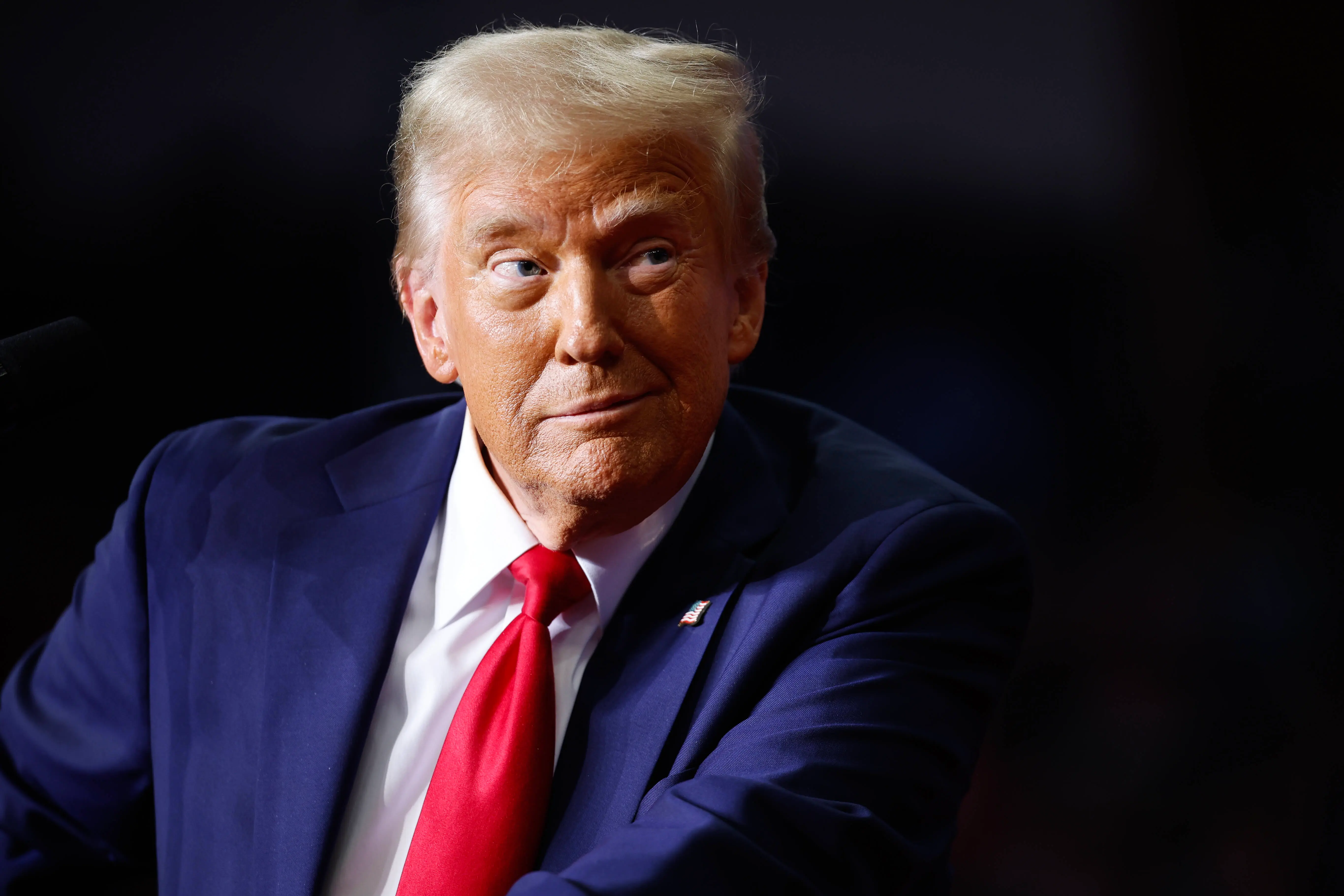Trump's H-1B executive order explained as Microsoft urges visa employees to return to the US before September 21
-
 PITTSBURGH, PENNSYLVANIA - NOVEMBER 04: Republican presidential nominee, former President Donald Trump holds a campaign rally at the PPG Paints Arena on November 04, 2024 in Pittsburgh, Pennsylvania. With one day left before the general election, Trump is campaigning for re-election in the battleground states of North Carolina, Pennsylvania and Michigan. (Photo by Chip Somodevilla/Getty Images)
PITTSBURGH, PENNSYLVANIA - NOVEMBER 04: Republican presidential nominee, former President Donald Trump holds a campaign rally at the PPG Paints Arena on November 04, 2024 in Pittsburgh, Pennsylvania. With one day left before the general election, Trump is campaigning for re-election in the battleground states of North Carolina, Pennsylvania and Michigan. (Photo by Chip Somodevilla/Getty Images)Tech giants like Microsoft and Amazon, as well as financial major JP Morgan, urged employees with H-1B and H-4 visas to return to the US immediately. The announcements popped up after Trump made prominent changes in the H-1B visa program. For the unversed, Trump has set a deadline of September 21, after which the steep new visa fee rules come into effect.
An internal email from Microsoft, cited by Reuters, read,
"H-1B visa holders should stay in the US for the foreseeable future. Also recommend H-4 visa holders remain in the US. We strongly recommend H-1B and H-4 visa holders return to the US tomorrow before the deadline."
Amazon also shared a similar notification urging its employees with H-1B status to refrain from leaving the country for the time being. The notification further urged the employees who were outside the US to return by 12:00 am EDT on September 21.
The annual H-1B visa fee has faced a hike, making it $100,000, which will reportedly be a strong hit for companies in technology, finance, healthcare, and engineering industries. According to CNBC TV18, industries with many employees from India and China are more likely to be affected.
In layman's terms, starting from September 21, no employee with an H-1B visa will be permitted to enter the US unless their employing company paid the hefty new fee. For the unversed, the H-1B visa program allowed companies in the US to hire skilled individuals in specialty occupations. Meanwhile, the H-4 visa allowed their family (spouses and children) to reside and settle in the US.
Everything to know about the new changes in the H-1B program, introduced by President Trump
The H-1B visa program, which was introduced back in 1990, has been going through some massive changes under the ongoing Trump administration. According to reports by Times Now News, the decision to increase the fee has been taken in order to restrict the misuse of the suspect, as claimed by the administration.
The outlet added that there would be exemptions "if in national interest" from the new fee for certain industries or companies. The new change is also likely to have a major impact on Indian professionals working with the H-1B visa. The visas are usually issued for three years and can be renewed after that.
In a case where an employer wants to sponsor an employee for permanent residency, the visa renewal process shall continue until the green card procedure is over. Now, the steps to get a green card itself are a complicated one, particularly for Indians, as per the outlet. This sparked questions as to whether these big firms will continue to sponsor the employees with such a massive hike in the fee.
Meanwhile, CNBC TV18 reported that industry analysts have shared their opinions on the current situation. According to them, this step might slow down innovation, global mobility, and the country's competitiveness. Meanwhile, White House staff secretary Will Scharf called the H-1B program "one of the most abused visa systems."
After signing the executive order on September 19, President Trump said that the industry would possibly give a positive response to the new change.
TOPICS: H-1B, Trump, Indian employees, Microsoft